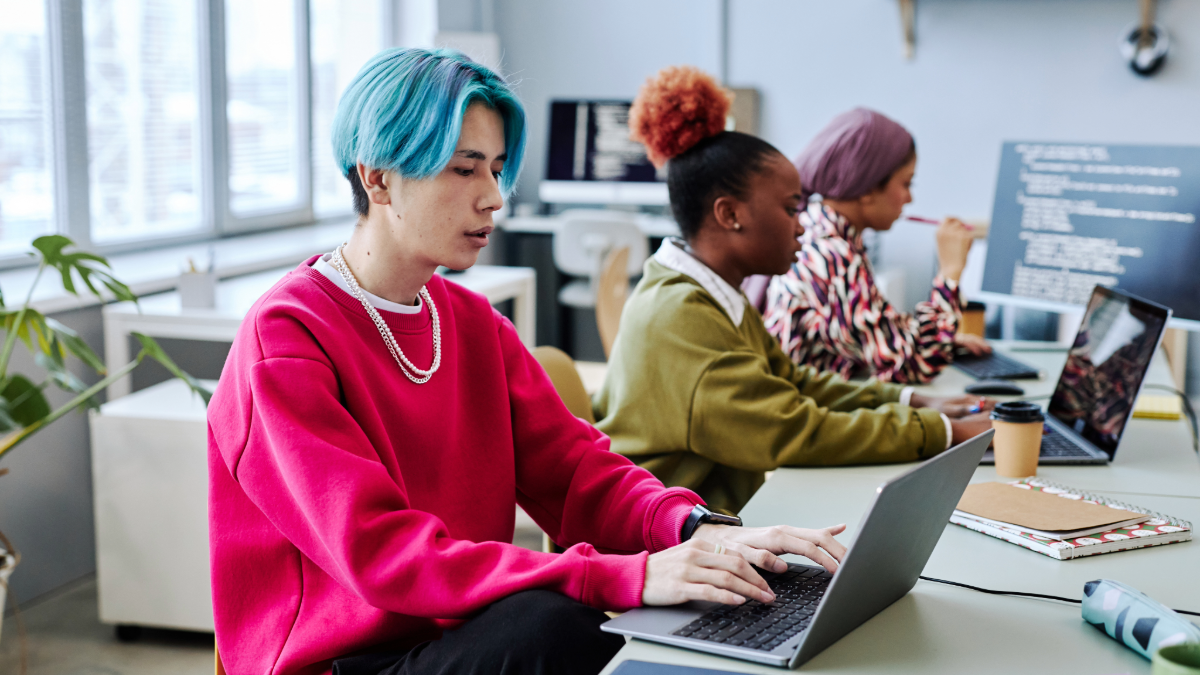Beatriz Flammini, a Spanish athlete and scientist, emerged last month after spending 500 days alone in an underground cave. Under the remote watch of scientists, she buried herself to write a book about the mind and body’s ability to withstand extreme solitude and deprivation.
This fascination with isolation is a bit baffling and a hallmark of modern society becoming increasingly individualistic and detached. The problem is, human beings were simply not built to be alone. Decidedly social creatures, we have a biologically-driven need for interpersonal bonds, living and thriving in the company of others. What’s more, we have always worked cooperatively. In fact that’s exactly why we eclipsed other species.
Despite our social natures and needs, our journeys through school and work are largely individual. And although most companies want collaboration, they hire, promote and reward individuals, hoping that good teams will just somehow happen. It’s counterintuitive, because incentivizing individual performance might get you good competitors but it certainly doesn’t always get you engaged collaborators. And that’s what we need. As pandemic lockdowns and remote work isolated us, collaborative work has exploded, increasing by more than 50% in the past two decades.
Even though we have to work together, particularly as the world’s problems get more and more complex, figuring out how to collaborate well is not easy. Looking to understand what makes some teams much better than others, researchers identified collective intelligence as the secret behind high performing teams. It’s an IQ-like factor that predicts how well a team solves challenges together. But unlike IQ, it's not about how smart the individual team members are, it's about the way they engage with each other.
Often we talk about the magic behind amazing teams. Those who seem to know where the ball is going before it even gets passed. But it’s not magic or luck. Building collective intelligence takes five specific skills. And these skills don’t happen by accident. Like all skills, they require practice.
- Listening with humility.
It may sound easy, but human beings are notorious for overestimating how well they listen. Research shows that we are really bad at it, forgetting a lot of what we hear right after we hear it. But it’s not our fault. Our brains are capable of listening to about 400 words a minute, but even fast talkers only hit 125. The brain looks for something else to occupy that sizable gap. It takes real work to train your brain to listen. It's not a personality trait that some people have and others don't. Adding humility to good listening helps you listen to learn, not simply to wait your turn to speak. And active, engaged listening is a productivity power tool, enhancing innovation and enabling collaboration. - Asking good and curious questions.
We like people who ask more questions. We perceive them as more responsive, better listeners who understand, validate and care about what we say. Too often, though, leaders ask instrumental questions, designed to confirm what they already know. But the cost of this approach is high. By focusing on open-ended rather than transactional questions (“what if’ instead of ‘what’, ‘what could be” instead of "how much”), you open the aperture for learning something new or unexpected. This is harder, but ultimately more fruitful. Even though ambiguous questions evoke some anxiety in the asker and the asked. The things that make you anxious tend to be the very things that matter. Good questions unleash new ideas by surfacing the insights of others. And they power inclusion, by signaling deep respect for the value of someone else’s contribution. - Challenging strongly held assumptions.
In 1711, the poet Alexander Pope wrote “a little learning is a dangerous thing.” Research proves him right: the Dunning-Kruger effect reveals that inexperienced people tend to vastly overestimate their ability. But it turns out that a lot of learning is dangerous too. Expertise entrenches us. The more we know, the more inflexible we become: we can't (or won't) hear other perspectives. In an alarming study, practicing psychiatrists sought evidence to confirm a wrong diagnosis in 70% of cases, rather than looking for new information. The smarter we are, the more adept we are at convincing ourselves and others that we are right. Even when we are not. But by learning to challenge our assumptions and suspend our beliefs, even temporarily, we mitigate confirmation bias, open our minds to others’ points of view and expand our mental models. - Disagreeing with respect and without retribution.
Disagreement in the workplace is healthy. It's a valuable check on overconfidence and an antidote to groupthink. The ability to consider and debate different approaches improves organizational outcomes. But generative disagreement requires psychological safety, the implicit belief that you can raise a difficult issue and your colleagues will have your back. When it comes to encouraging people at all levels to speak up, hierarchy is an obstacle. An even more frightening study revealed that 90% of nurses would not contradict a doctor, even if a patient's life is at risk. How alarming is that? No organization can achieve its full potential in the presence of such fears. You can't have high performing teams and you can't have collective intelligence without the psychological safety to air competing viewpoints. - Widening the circle of empathy.
We tend to think of empathy as a remedy for bias, but empathy itself is biased. Despite our best intentions, we are hard-wired to break the world into Us and Them. And our perceptions are insidious, disrupting our ability to work together. Stanford neuroscientist Robert Sapolsky explains that when someone in our Us group does something wrong, we may scrutinize their actions but we don't question their character. But when someone in a Them group does something wrong, we perceive it as an existential character flaw. It's who they are, not simply a choice they made. In high turnover workplaces with diverse colleagues, this natural wariness of others can be disastrous, limiting the effectiveness of teams and groups and ultimately preventing performance. The good news is that this is fully in our control - with practice, we can widen our empathy. We can learn to listen to our colleagues and be curious in the face of new ideas. By building deep trusting relationships, we can, as scholar Jamil Zaki explains, “free our empathy from its evolutionary bonds."
Flammini’s well-publicized cave isolation experiment demonstrates that individuals can accomplish and withstand a lot on their own. But in today's world, that’s not enough. So much of what lies before us - at work and in the world - requires us to solve wicked problems together. Developing these five skills is a good place to start. They're not rocket science, but they aren't easy either. They take time and commitment to learn and practice – together. We would never ask a professional sports team to only play and never practice. Yet we ask business teams to do it all the time. If we don’t learn how to activate our collective intelligence we’ll all end up banished to our individual caves. And that’s no way to work – or win.
First published on Forbes.com.








